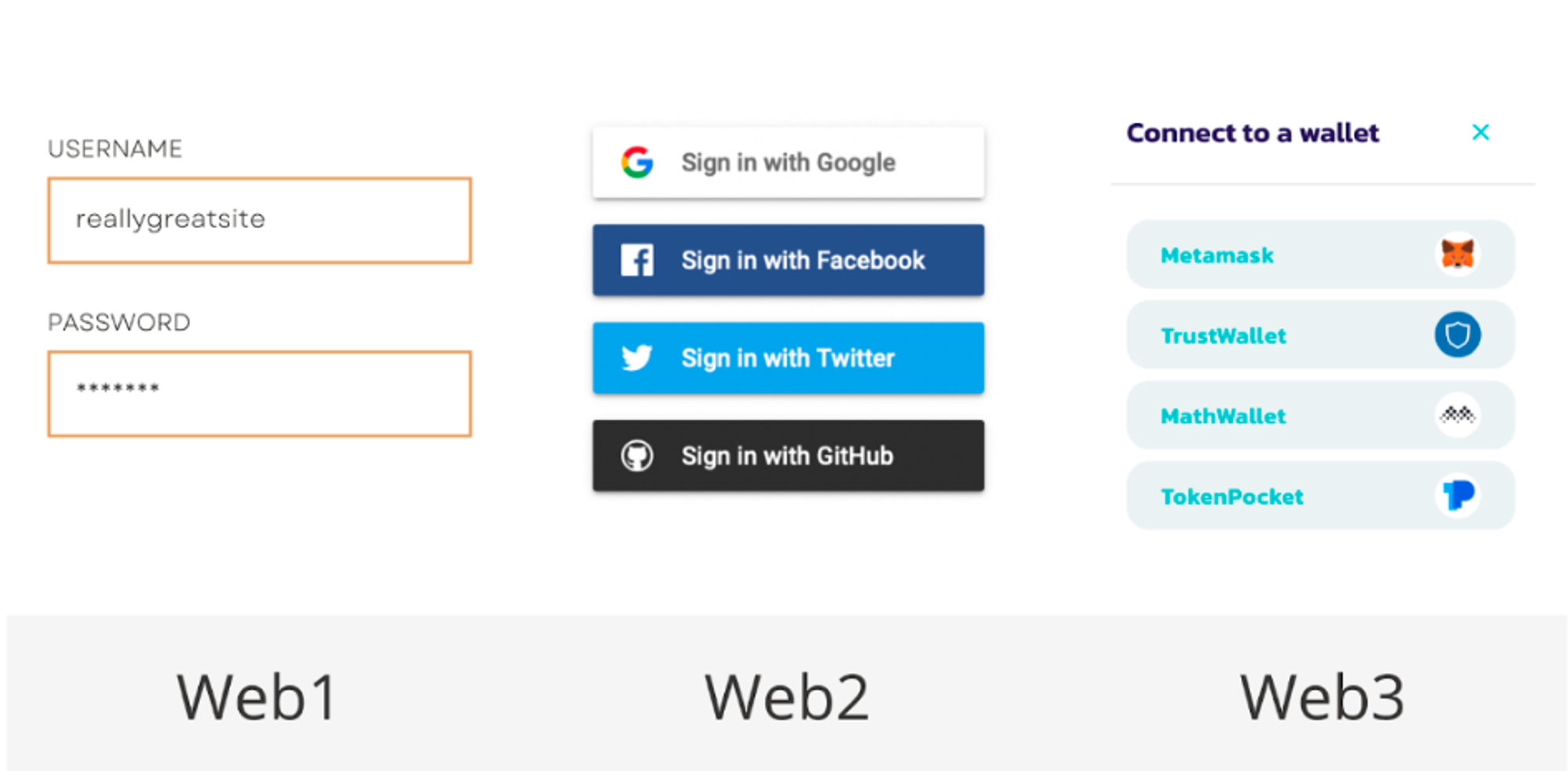Some definitions
Web3 has become a catch-all term for the vision of a new, better internet.
(I personally think this is the silliest, but actually the best, definition.)
Web1 = read Web2 = read / write Web3 = read / write / own
- @cdixon.eth, partner at venture capital firm a16z
Web3 is the path for all companies to become crypto companies
- Chainalysis
What does this mean?
Basically two things: decentralization and cryptocurrency.
OK, let’s cover decentralization first
Web3 means getting rid of centralised power and allowing users to take full control. Of their data, their assets, their money. Of everything. That’s the longterm goal anyway.
Right now the big web2 companies offer most of their products for free. But as the saying goes, “If you’re not paying for it, you’re not the customer. You’re the product.” Gmail is free, but the core business of Google isn’t email, it’s collecting data about your identity and then selling you ads. Gmail is a way of feeding their core business.
One upside of this model is that you can then use that proof of identity to sign into various other apps. One downside of this is that your identity is tied back to Google, who know everything about you.
Web3 allows you to prove your identity without going through that middleman, or that point of centralization. The image below shows how we can authenticate ourselves with our web3 wallets - identities that we own 100%, share with nobody, and are provably ours.

Web3 can bring decentralization to the world by enabling community ownership of projects and companies rather than top-down corporate control.
DAOs — decentralized autonomous organizations — allow anyone to take a stake in a company and guide its direction through a voting process.
NFTs are synonymous with jpegs, but that’s missing the point. An NFT is just a digital deed of ownership. If you have the NFT in your wallet, you can prove ownership of the asset it represents. This could be used to prove ownership of university degrees, houses, or physical goods where provenance is important.
This also means that - again - you get rid of the middleman. In the arts, you could directly support your favourite creators and fully own their artworks, rather than essentially renting them from Spotify or Netflix.
Why cryptocurrency?
Money makes the world go round.
Communities need to be incentivized and rewarded for maintaining and developing projects or core infrastructure. Crypto tokens provide a financial incentive for anyone who wants to participate in creating, governing, contributing to, or improving one of the projects themselves.
Money is also one of the more straightforward applications to understand. If you get some crypto and hold it in your wallet, you can be confident that you own that money and can do what you like with it. Without fearing the government or the bank stopping you.
People are gradually getting excited about other use cases for web3, but DeFi (decentralised finance) is still the most important and the largest use case.